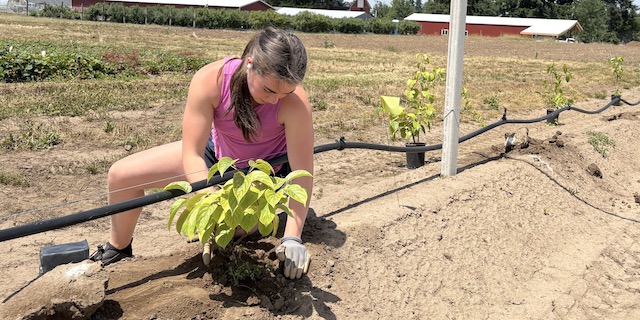Potato sprout inhibitor approved for commercial use
Published 10:15 pm Thursday, February 14, 2013

- Potatoes
By MATTHEW WEAVER
Capital Press
A potato sprout inhibitor patented by Washington State University has been approved for sale in the U.S.
AMVAC Chemical Corp. recently received Environmental Protection Agency registration for the potato sprout inhibitor SmartBlock, which is a naturally occurring compound classified as a biopesticide.
AMVAC will immediately begin marketing the product in the U.S., and approvals are progressing on Canadian and European registrations.
Rick Knowles, chairman of the WSU Department of Horticulture, and his wife and research partner, Lisa, an assistant research professor, made the initial discovery in 2000.
“Any time you store potatoes, (sprout) is a problem,” Knowles said.
Potatoes are stored in bulk inside large storage facilities, which can hold 10,000 to 15,000 tons. Sprout inhibitors must be applied uniformly throughout the storage in a thermal fog distributed through the ventilation system with the flow of air, Knowles said.
SmartBlock chemical is liquid and forms a thermal fog in existing systems, using current commercial applicator equipment, Knowles said. It uses a different chemistry than existing products, Knowles said.
Pacific Northwest potato research director Andy Jensen expects the product will be used when potatoes are to be exported.
CIPC is the most commonly used sprout inhibitor and has been around for decades, Jensen said. Tolerance for CIPC residue is low in some foreign markets, and products like SmartBlock could be used as a replacement.
Jensen said using CIPC at reduced rates in combination with a product like SmartBlock would be a good strategy for reducing CIPC residue.
CIPC must be applied when tubers are dormant and is less effective when they’ve already started to sprout, Knowles said. SmartBlock is applied when the potatoes begin to emerge from dormancy and show visible signs of sprout.
The inhibitor chemicals are naturally occurring flavor constituents of porcini mushrooms, yogurt production and other foods, Knowles said.
It’s approved as a food additive by the food and flavor industry, Knowles said, but does not impact the flavor of stored potatoes.
Once fogged into storage, the chemical works on the sprouts and dissipates quickly.
“I’d just like to make the industry aware there is another chemical out there,” he said. “It’s one more tool in the toolbox. Hopefully it will help the industry.”
The WSU Research Foundation has patented the class of chemicals that inhibit sprout.
Knowles said his research team worked closely with AMVAC for 12 years to study the class of chemicals. The work remaining includes basic research and patent work on mixtures and chemical efficiency, he said.
Knowles said he receives a small fraction of the royalties the university receives for the patent.






